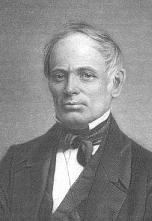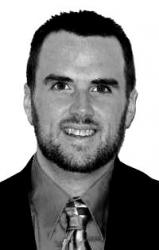Planning worship?
Check out our sister site, ZeteoSearch.org,
for 20+ additional resources related to your search.
- |
User Links
Person Results
Salīm Kassāb
1841 - 1907 Person Name: سليم كساب Author of "نور فادي الناس أشرق" in كتاب الترانيم الروحية للكنائس الإنجيلية Saleem Ibn Elias Kassab
سليم بن إلياس كساب
Salīm Kassāb
Adin Ballou

1803 - 1890 Person Name: Adin Ballou, 1803-1890 Author of "Years Are Coming" in Singing the Living Tradition Ballou, Adin. (Cumberland, Rhode Island, April 23, 1803--August 5, 1890, Hopedale, Massachusetts). At the age of nineteen he was accepted as a minister in the Christian Connexion, but later entered the Universalist ministry and served churches in Milford, Mass.; New York City; and in Mendon and Hopedale, Mass. He is noted as founder of the famous Hopedale community (1842), an experiment in "practical Christianity." A hymn by him, beginning "Years are coming--speed them onward" was included in Church Harmonies, 1873, in Hymns of the Church, 1917, and in Hymns of the Spirit, 1937.
--Henry Wilder Foote, DNAH Archives
Adin Ballou
L. I. Gentle
1904 - 1988 Person Name: Leonard Ivor Gentle Translator of "Amo Dia, senkompara" in TTT-Himnaro Cigneta Leonard Ivor Gentle, an Englishman, was for 26 years the organist of the Londona Esperanta Diservo, for many years the best known Esperanto Protestant worship meeting. Four of his works appear in Adoru, and many others are accessible at the archived versions of TTT-Himnaro Cigneta (http://reocities.com/cigneto/thcbio/g/gentle_li.html)
Leland Ross
L. I. Gentle
W. G. Polack

1890 - 1950 Person Name: W. Gustave Polack, 1890-1950 Author of "God of grace and love and blessing" in The Hymnal
W. G. Polack
F. Richard Garland
Author of "Through the Universe, a Story" in Discipleship Ministries Collection The Reverend F. Richard Garland is a retired United Methodist pastor. He and his wife, Catherine Sprigg, a Certified Registered Nurse Anesthetist, live in North Kingstown, RI.
Dick was born and raised in Fort Wayne, Indiana, and is a lifelong Methodist. A graduate of Garrett Theological Seminary, he interned in Chicago and then served churches in Indiana, Rhode Island, Massachusetts, and Connecticut. He continues to preach on occasion, provide coverage in emergency pastoral situations, and write a monthly essay, "From Where I Sit" for the newsletter of the North Kingstown UMC. He has been a contributor to The Upper Room.
Dick is a lifelong hiker who still climbs in the mountains of New Hampshire. At home, he spends a great deal of time in his flower gardens. He has sung with the Rhode Island Civic Chorale and Orchestra and is a member of the Fellowship of United Methodists in Music and Worship Arts.
Dick wrote his first hymn, a children's song, in a seminary music class with Austin C. Lovelace, and he has written poetry for many years. He began writing hymns for use in his churches about twenty years ago, but did not submit them for publication until 2006, after being encouraged to do so by a classmate and friend.
Many of his texts are inspired by the seasons of the church year, particularly Christmas and Easter, and by Scriptures from the Lectionary. In April of 2007, an appeal from a clergy colleague for a memorial hymn in response to the shootings at Virginia Tech University resulted in the creation of his hymn, In Grief and Aching Sorrow, set to the tune, Passion Chorale by J.S. Bach. Once, his pastor, frustrated in trying to find enough hymns to go with the Good Samaritan story in Luke 10:25-37, asked him to write a new hymn for a service. The result was his hymn, "When We Would Neighbor Be." On a dare from a colleague, he revealed a whimsical side by writing a hymn for Groundhog Day, "Praise the Lord for Woodland Creatures." His hymn, "I Have a Dream," was written to celebrate the 50th Anniversary of the address by The Rev. Dr. Martin Luther King, Jr. He has written a series of texts based on the selections from the Letters to the Ephesians and to the Philippians found in the New Revised Common Lectionary.
F. Richard Garland
F. Richard Garland
Peter Ellis
Author of "Lavish Love, Abundant Beauty" in The Hymnal for Worship and Celebration
Peter Ellis
Frank W. Gunsaulus
1856 - 1921 Person Name: Frank W. Gunsoulus Author of "Hyfrydol" in Songs of the Tabernacle
Frank W. Gunsaulus
R. R. Williams
Translator of "Dyma babell y cyfarfod (Here is found a Tabernacle)" in Welsh and English Hymns and Anthems
R. R. Williams
Werner Kaschel
1922 - 2010 Person Name: Werner Kaschel (1922- 2010) Translator of "Vem, Jesus tão desejado (2)" in Mil Vozes para Celebrar
Werner Kaschel
Solomon L. Ginsburg
1867 - 1927 Person Name: Salomão Luiz Ginsburg Translator of "Cantarei a Linda História" in Hinário para o Culto Cristão Born in Poland in 1867, Ginsburg was a Baptist pastor and missionary to Brazil for thirty-five years. He wrote A Wandering Jew in Brazil: An Autobiography
Solomon L. Ginsburg
Milburn Price
b. 1938 Author of "God of Past, Who by Your Spirit" in Celebrating Grace Hymnal Price, Milburn. (1938-- ). University of Mississippi, B.Mus., 1960; Baylor University, M.M., 1963; University of Southern California, D.M.A., 1967. Taught at Furman University (South Carolina); served as choir director for Baptist churches in Mississippi, Texas, California, and South Carolina.
--The Hymn Society, DNAH Archives
Milburn Price
William Howells
Person Name: W. Ho. Translator of "Marchog, Iesu, yn llwyddiannus (Onward march, all-conquering Jesus)" in Mawl a chân = praise and song
William Howells
Eric Schumacher

b. 1976 Author of "He is altogether lovely" in Songs for Suffering Saints
Eric Schumacher
Salīm Abdel Ahad
? - 1960 Person Name: سليم عبد الأحد Transaltor of "إمتحني يا إلهي" in ترانيم الإيمان سليم عبد الأحد
Salīm Abdel Ahad
Mabel Jones Gabbott
1910 - 2010 Person Name: Mabel Jones Gabbott, b. 1910 Author of "In Humility, Our Savior" in Hymns of the Church of Jesus Christ of Latter-day Saints
Mabel Jones Gabbott


 My Starred Hymns
My Starred Hymns


